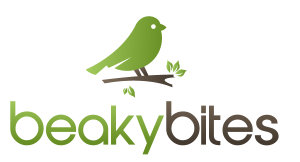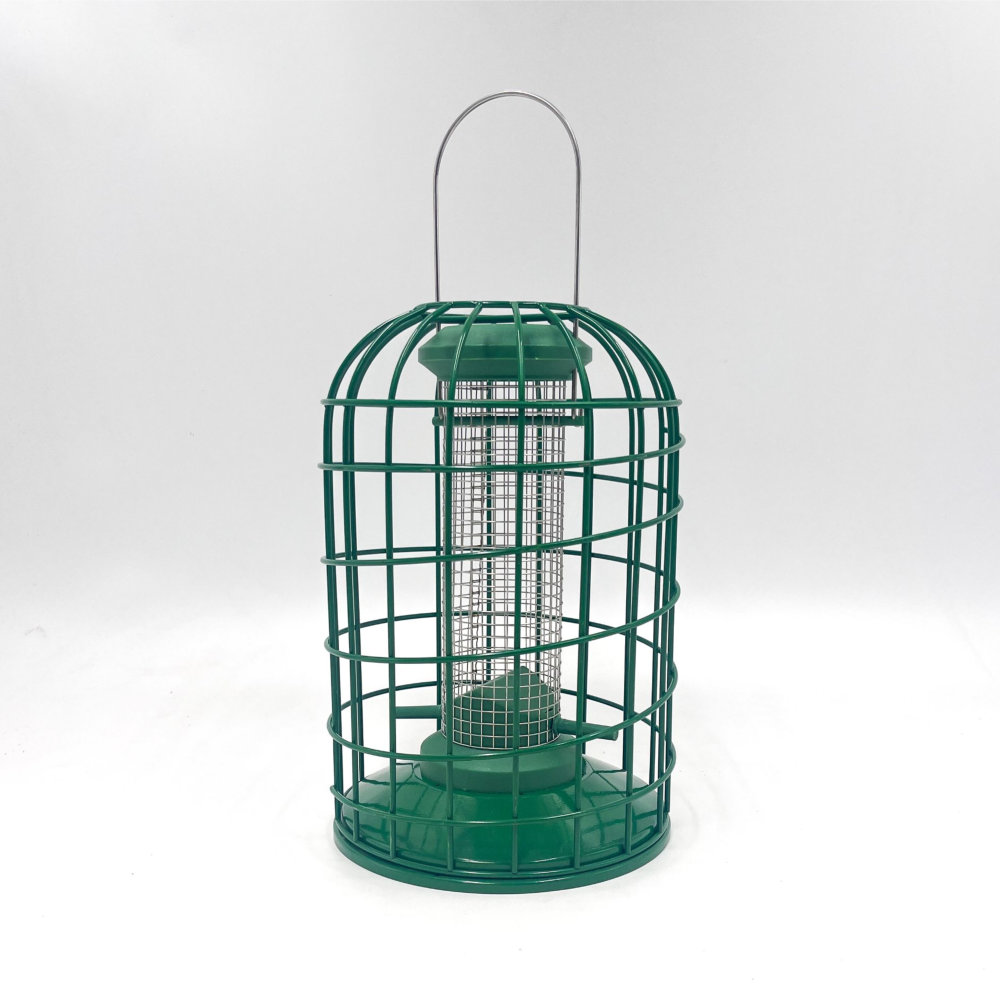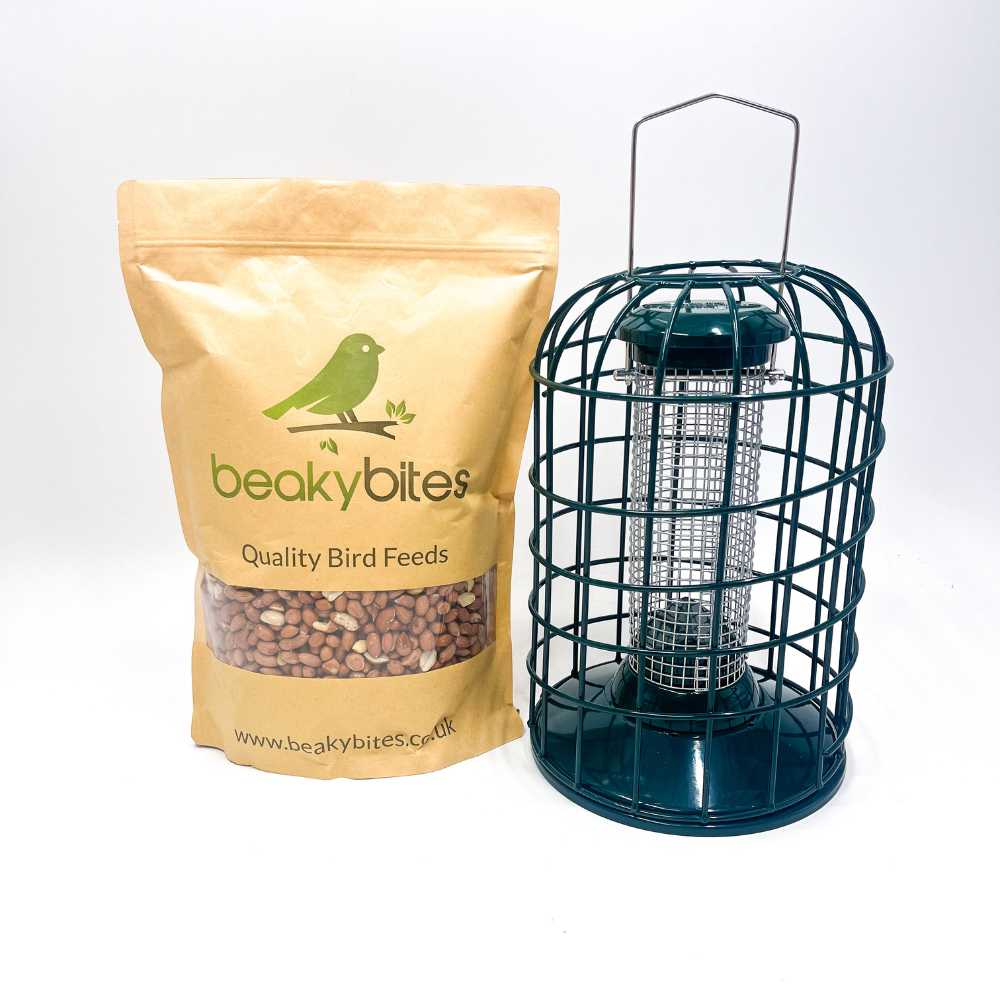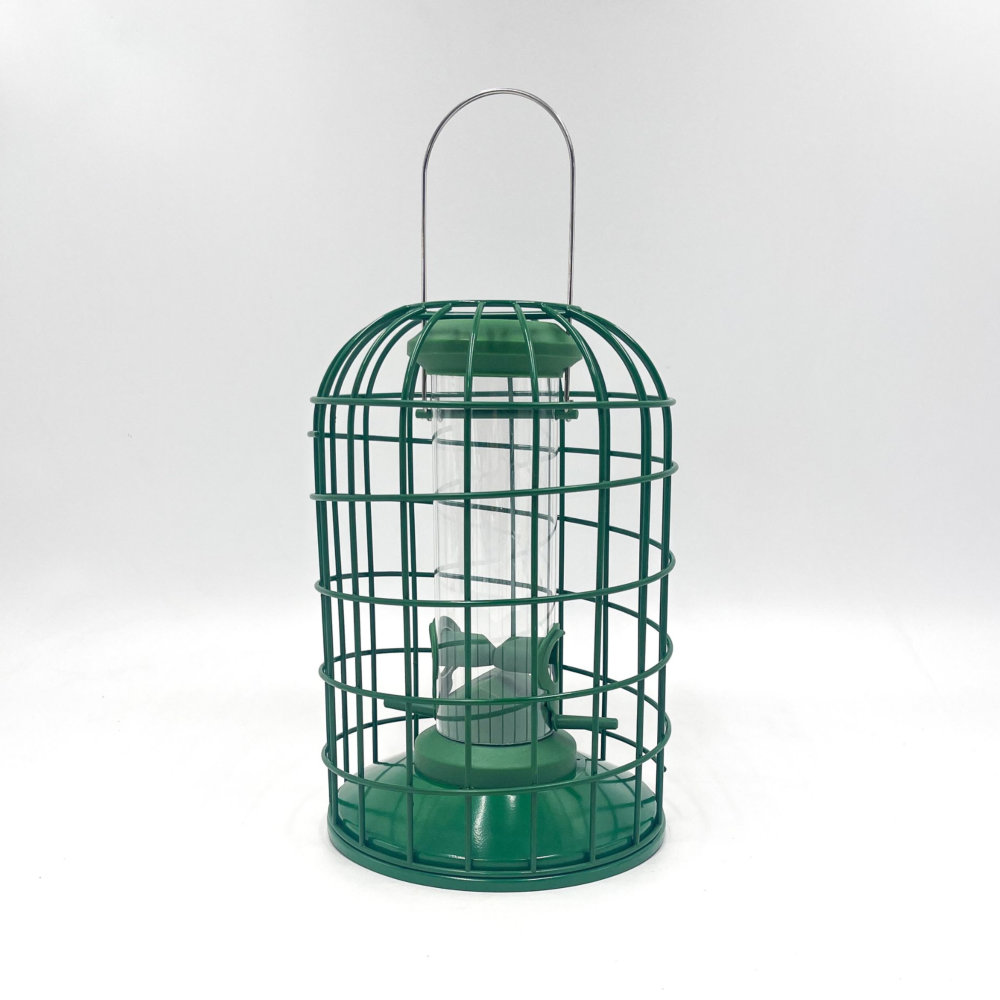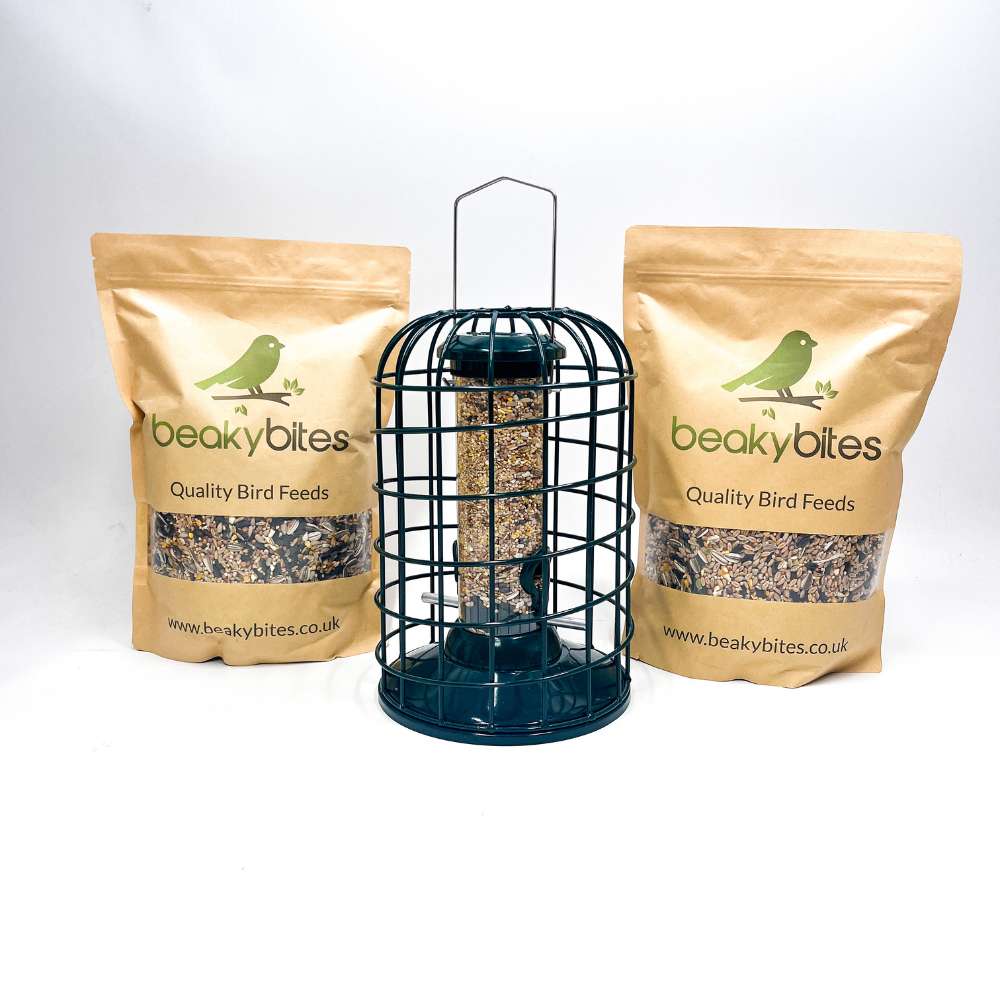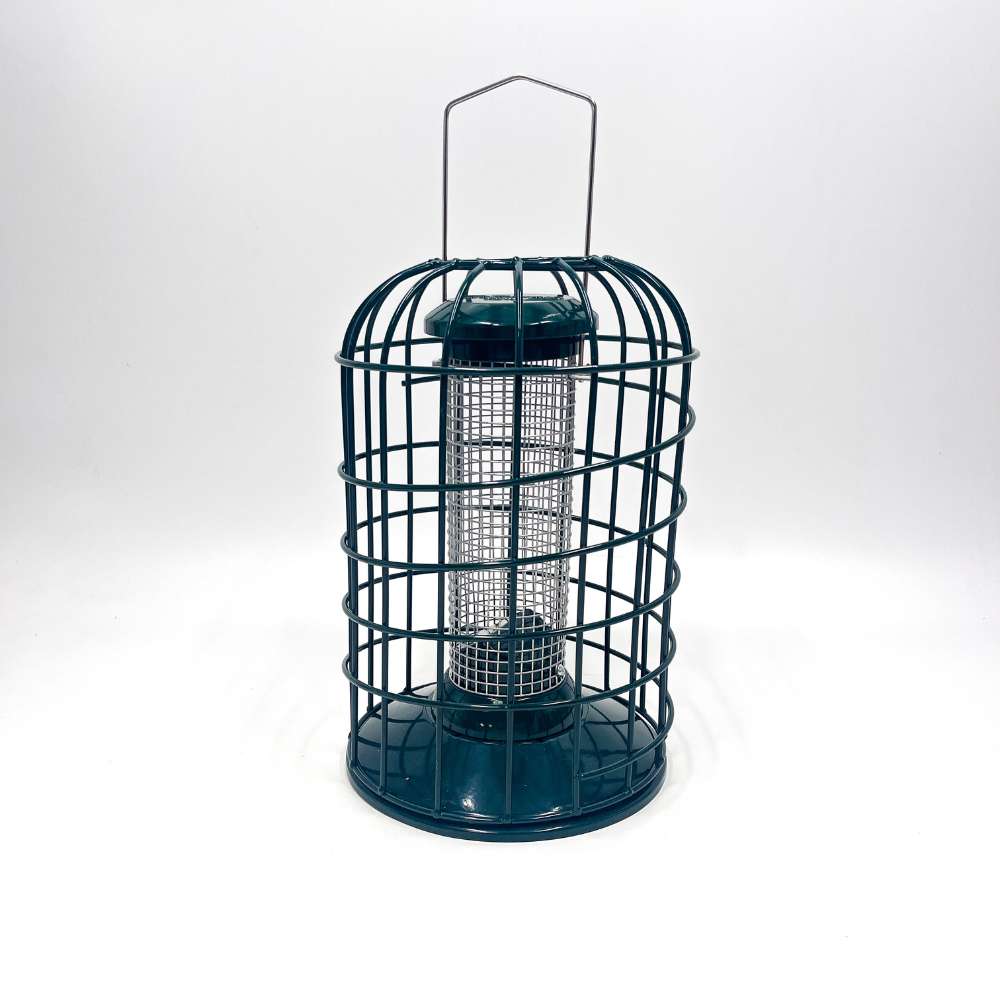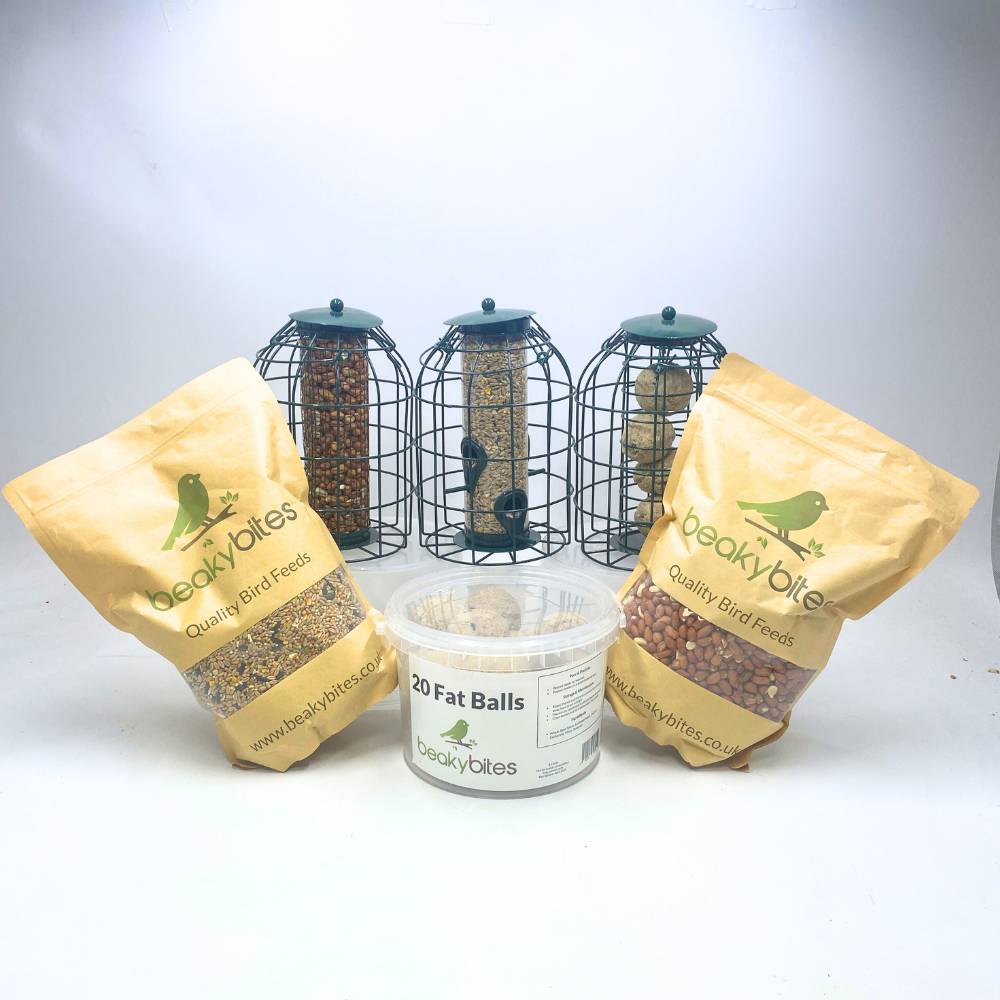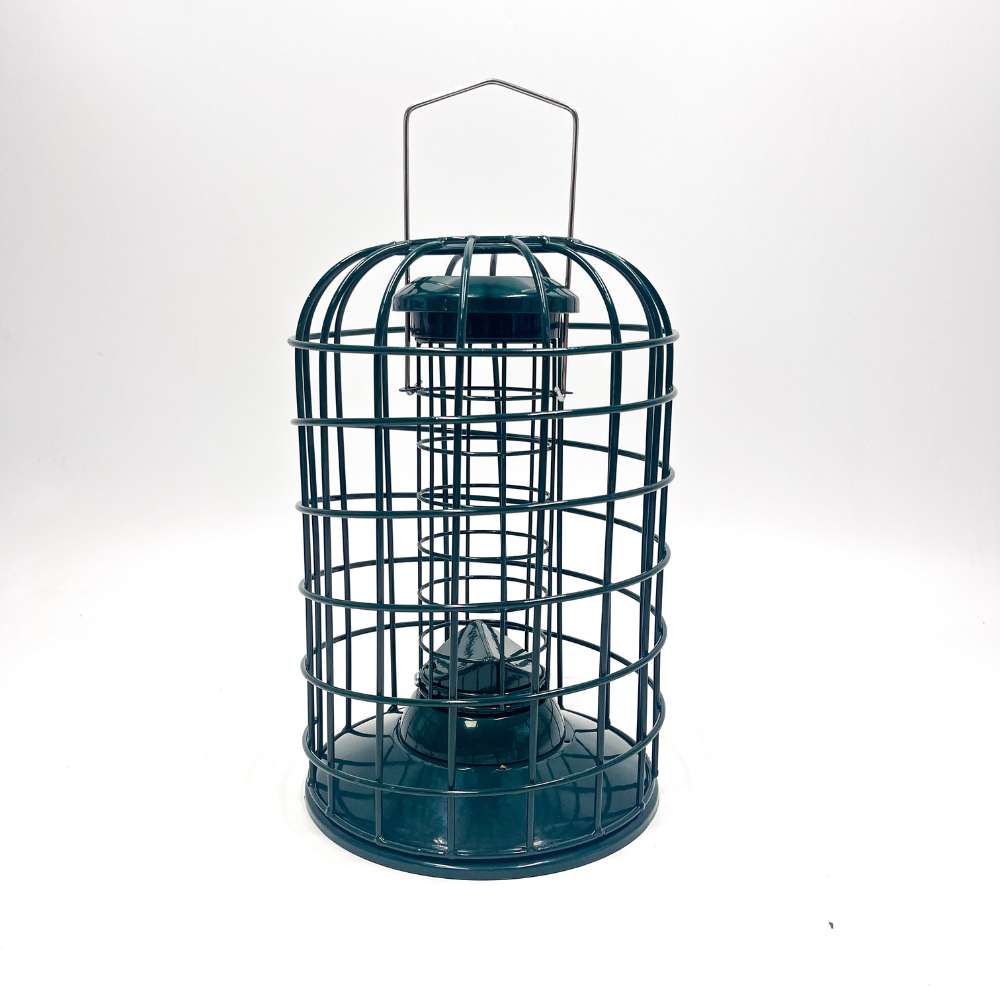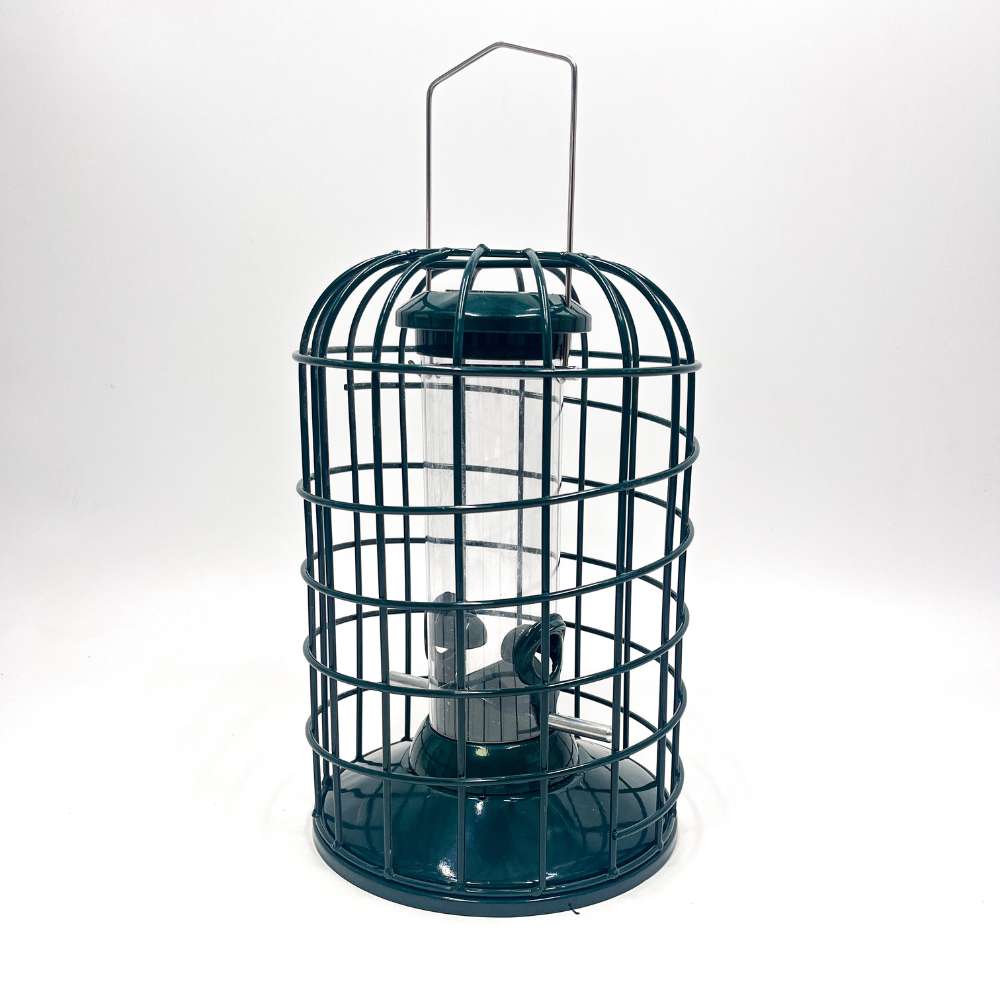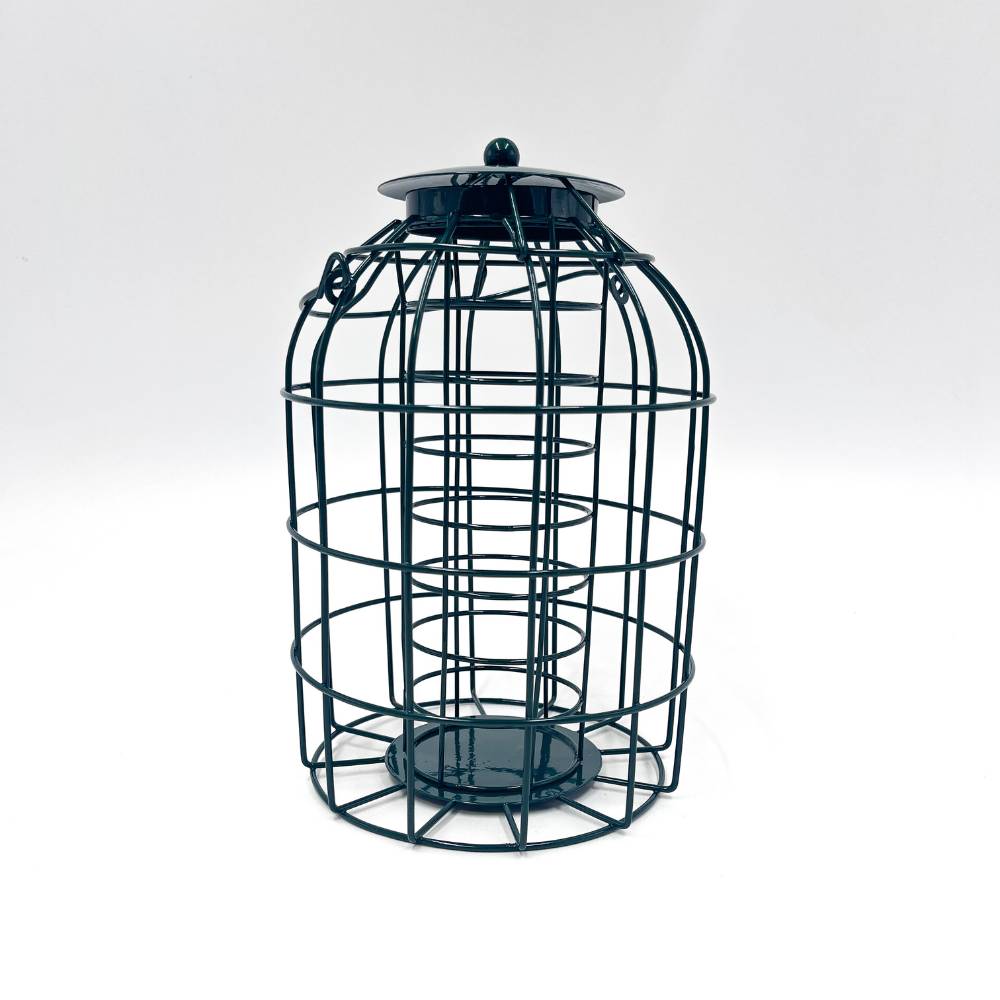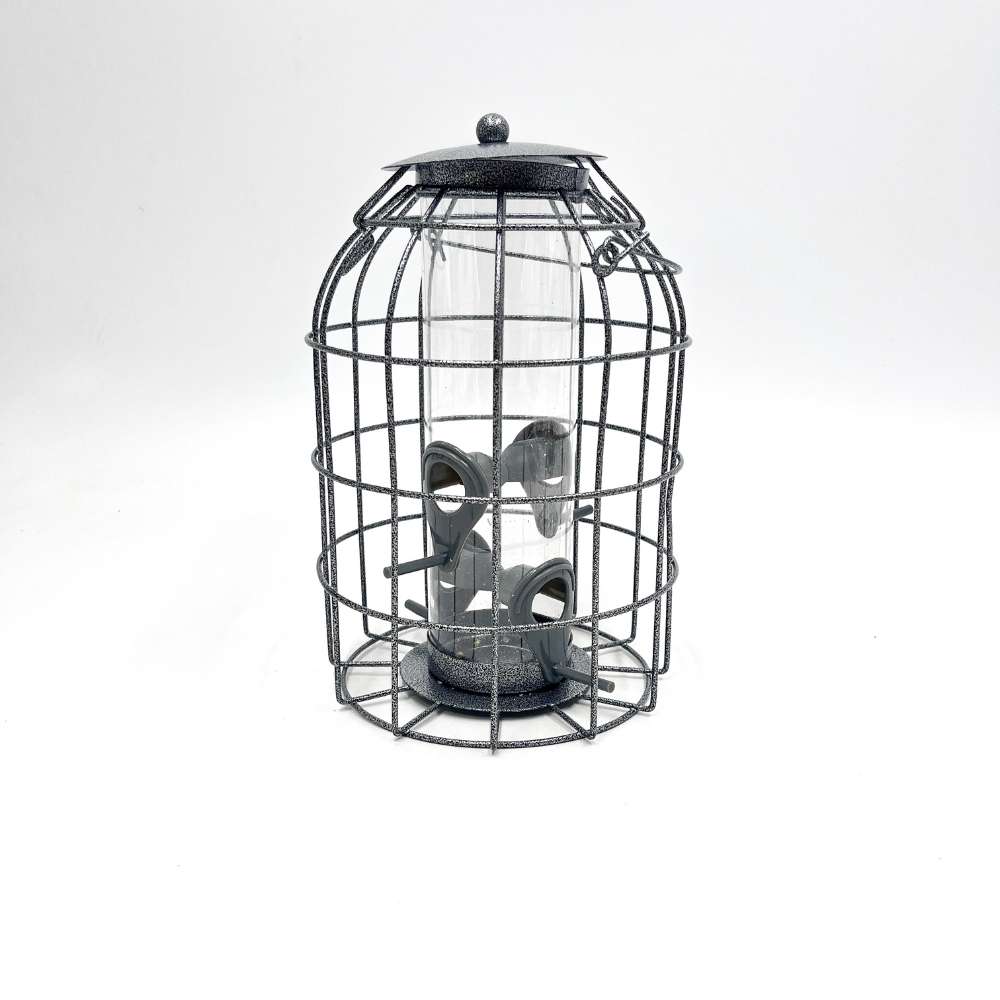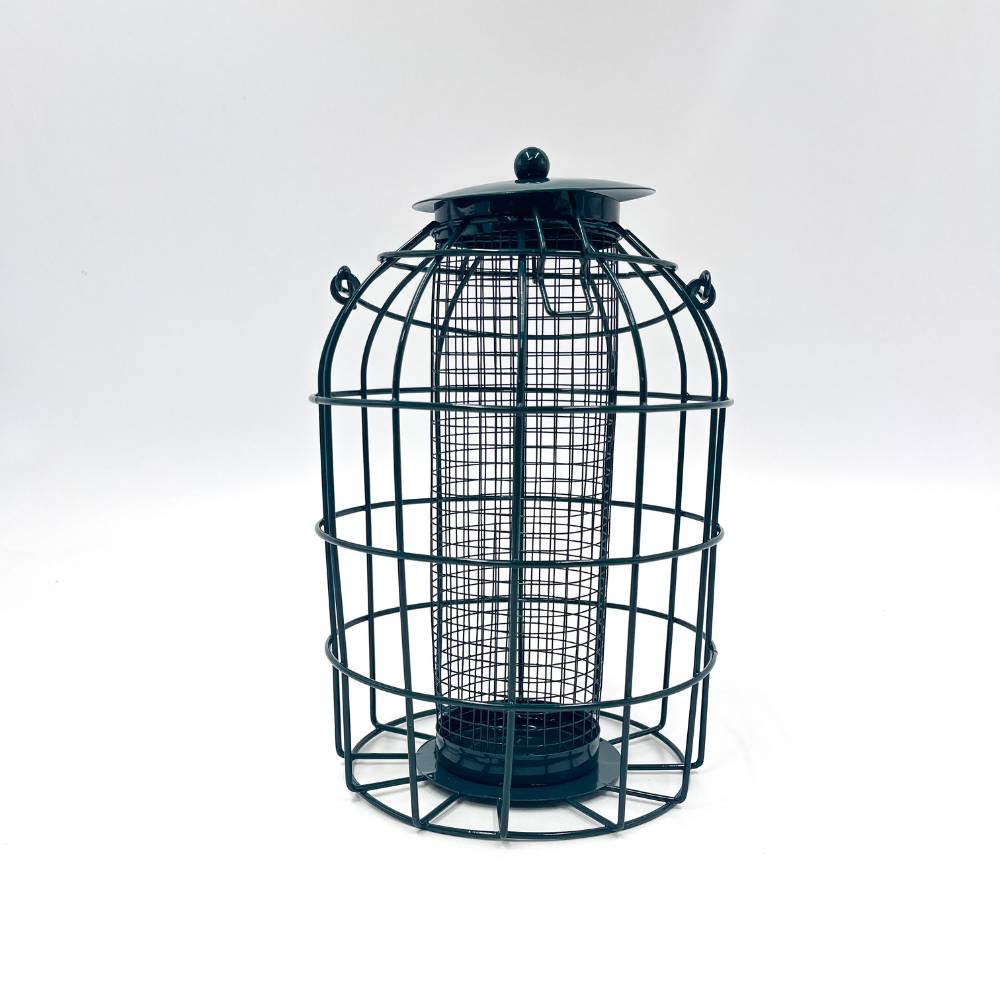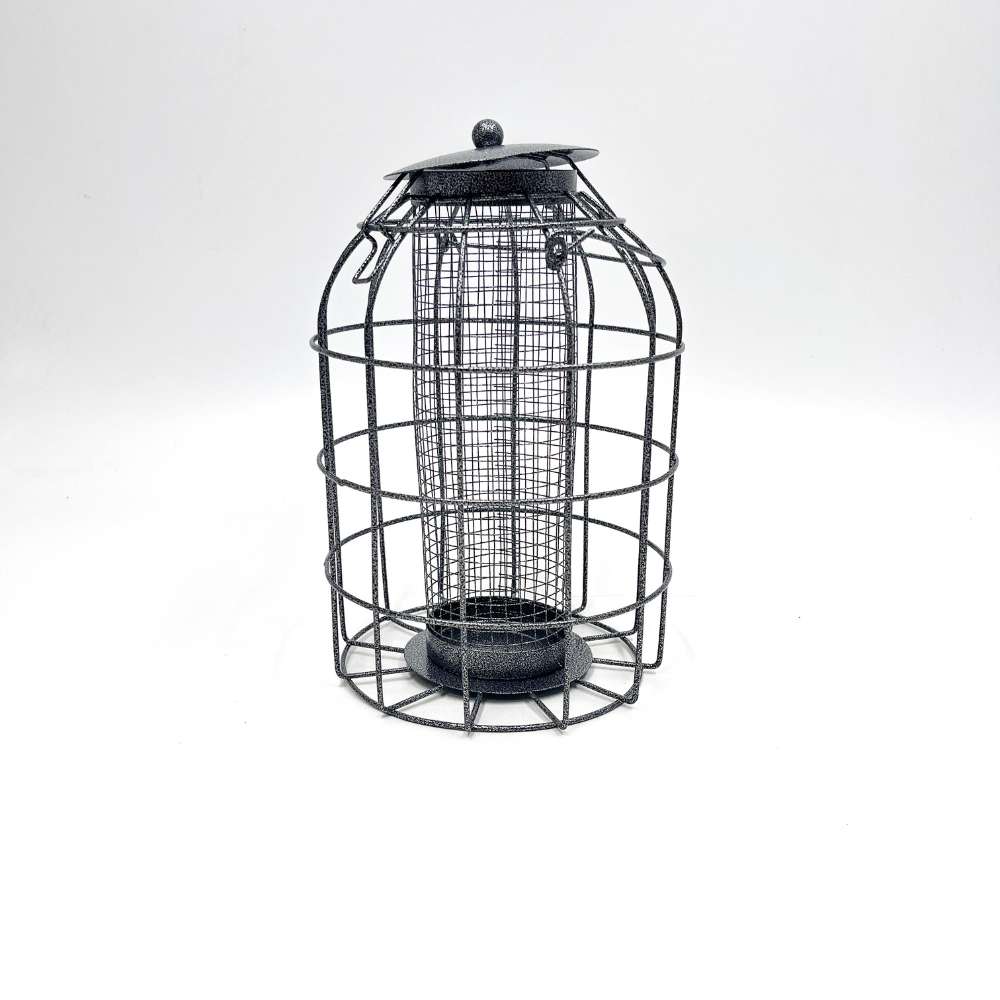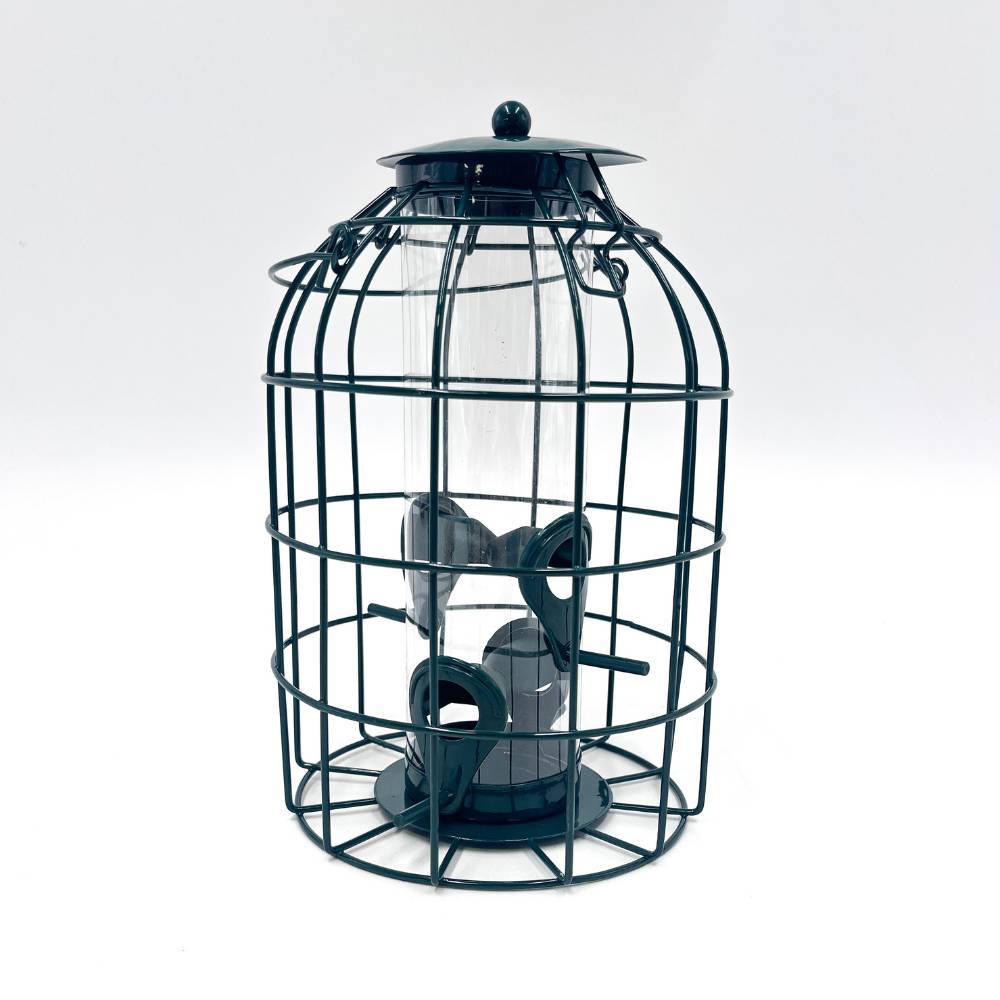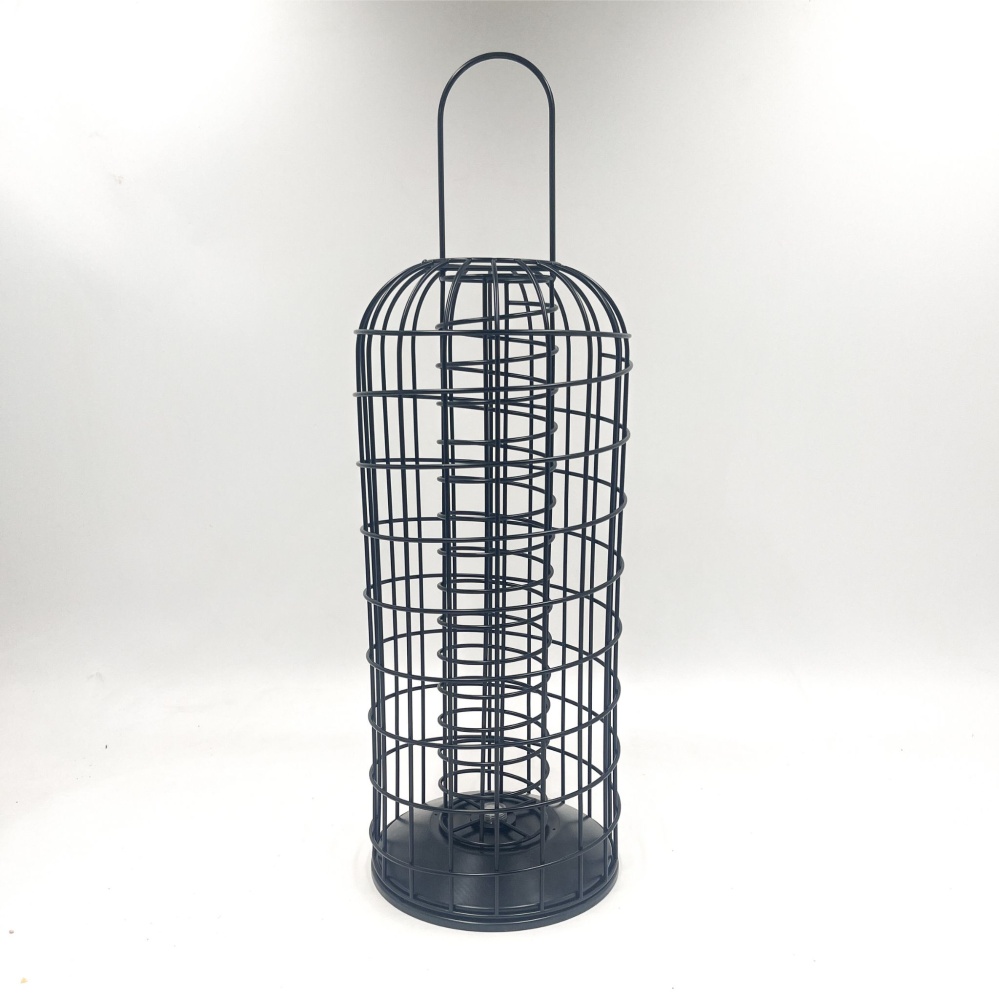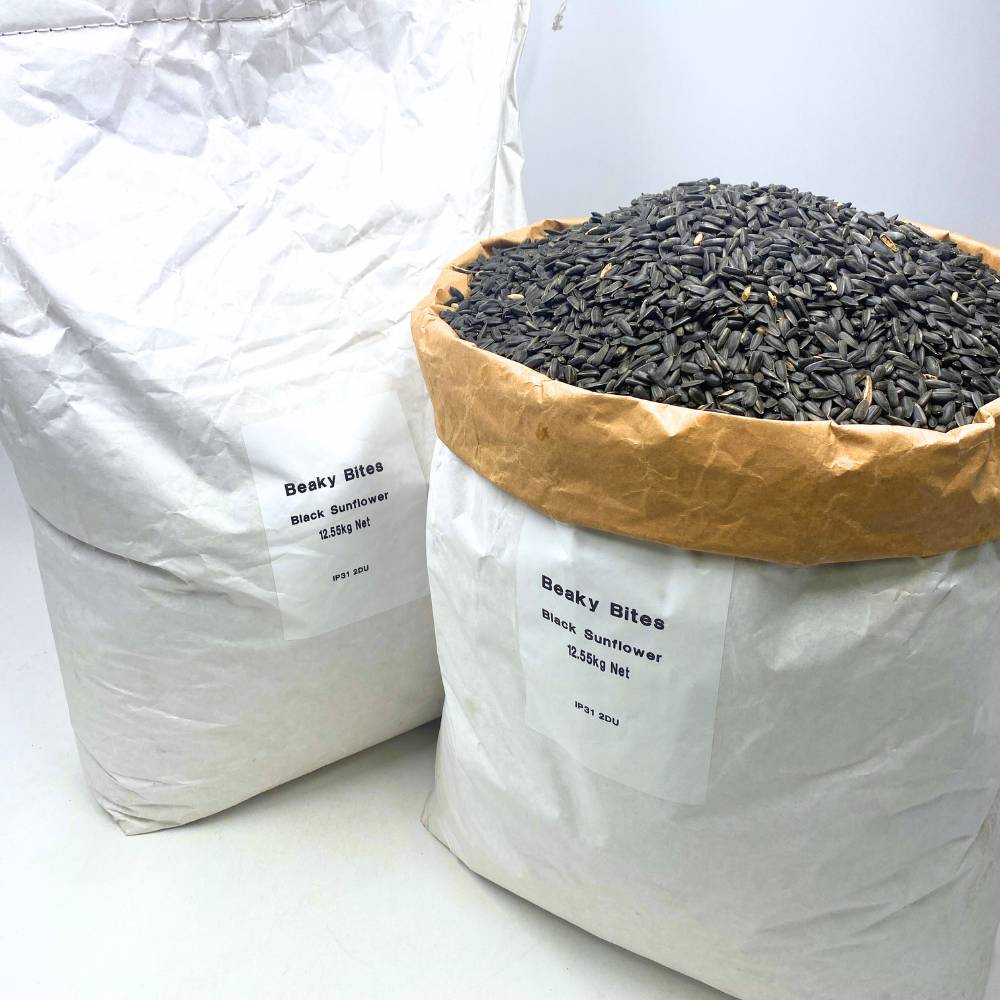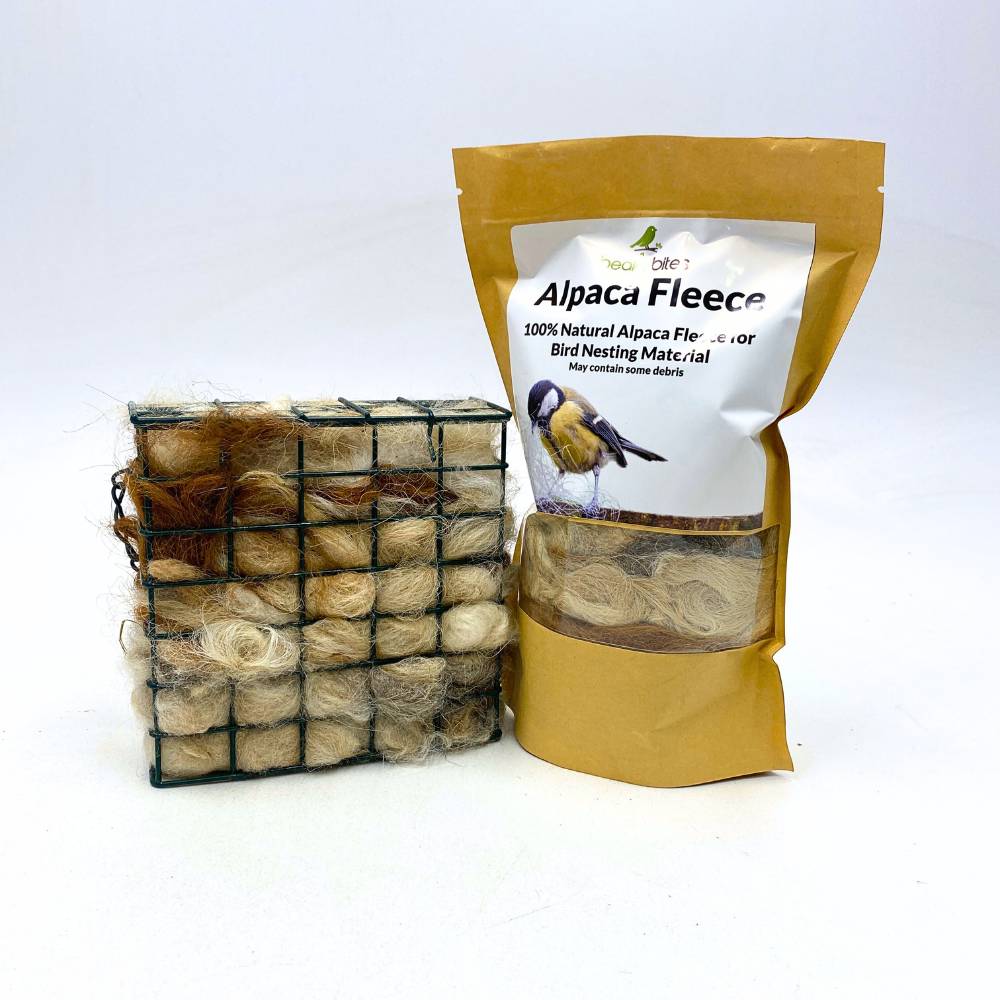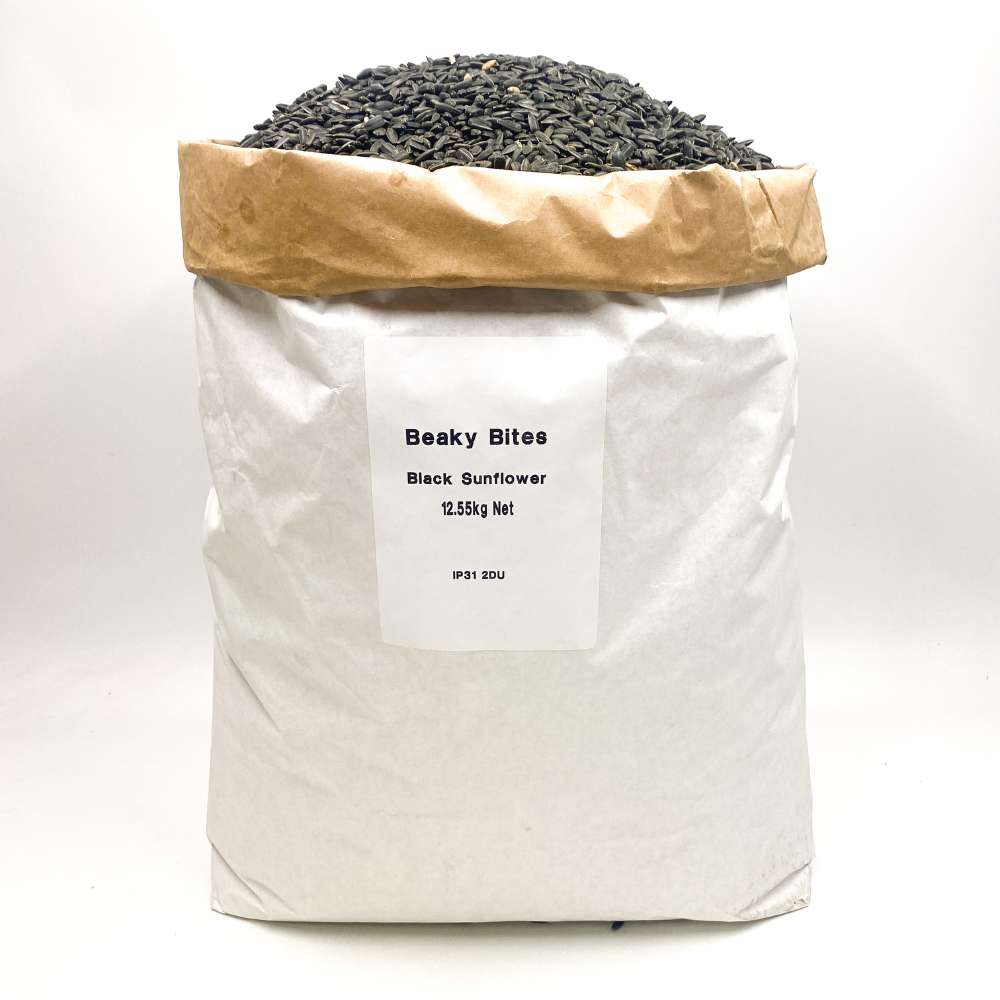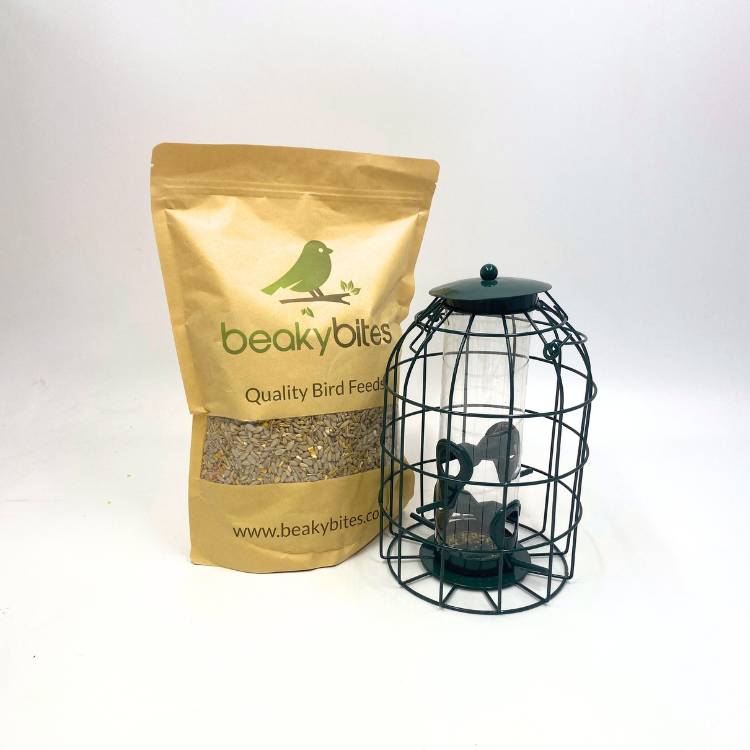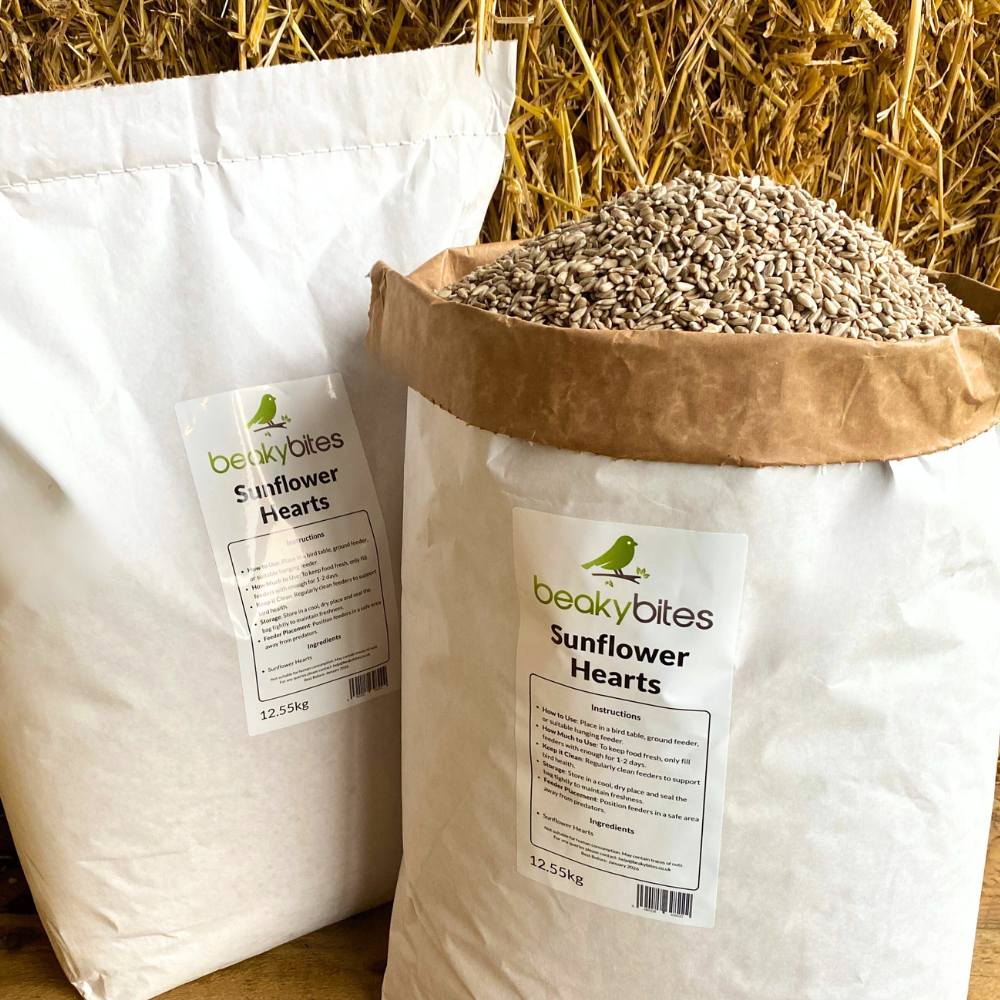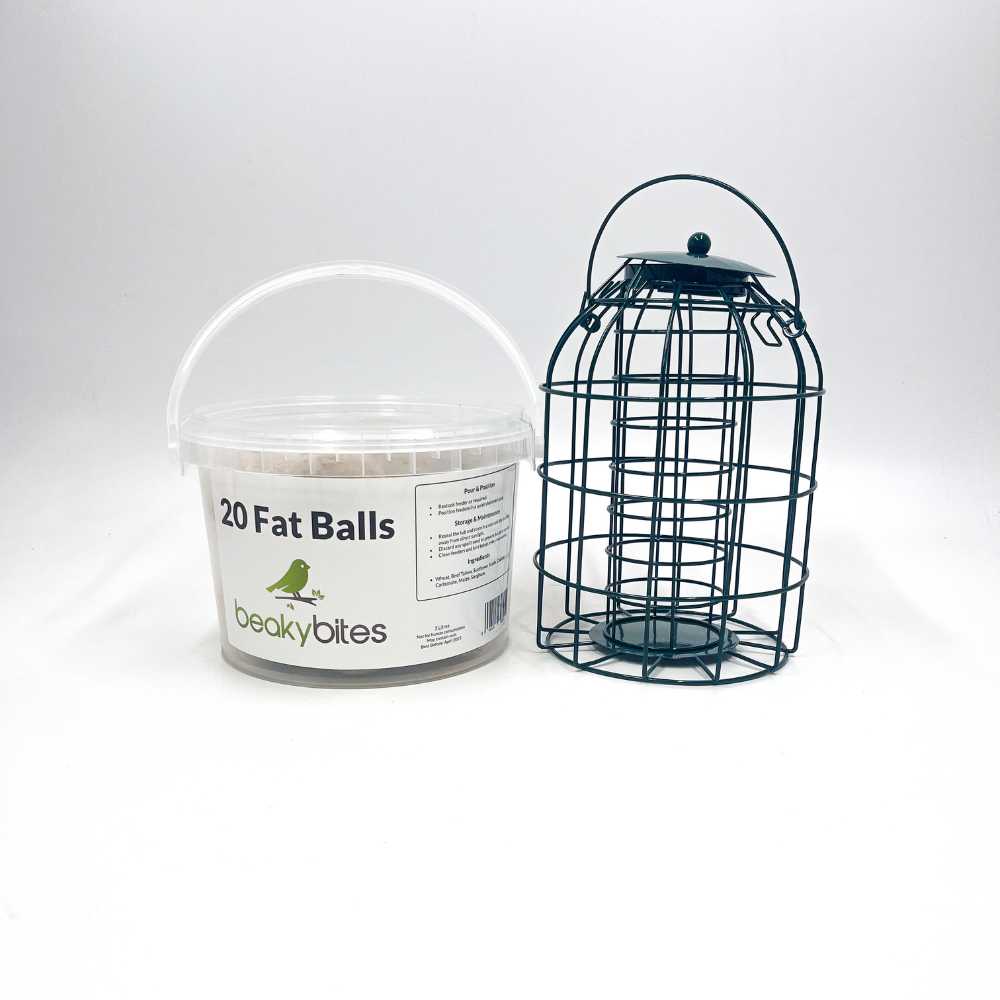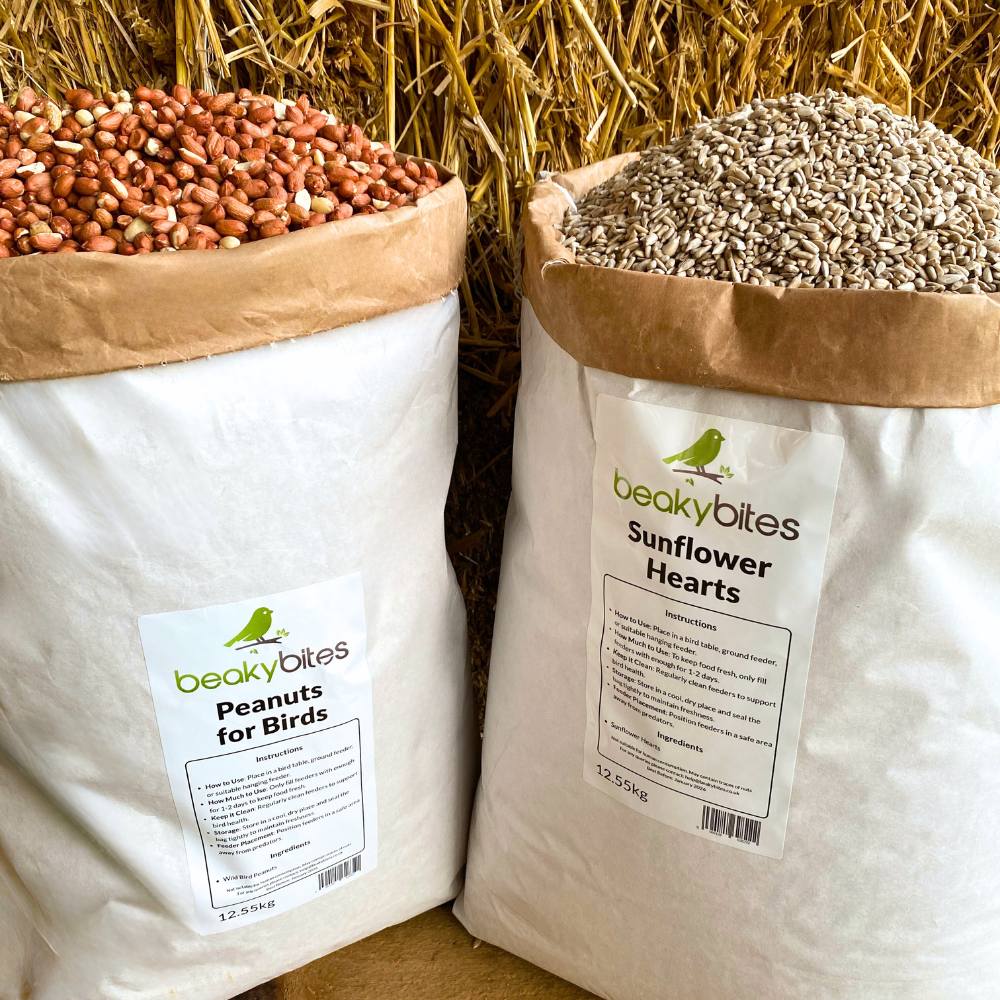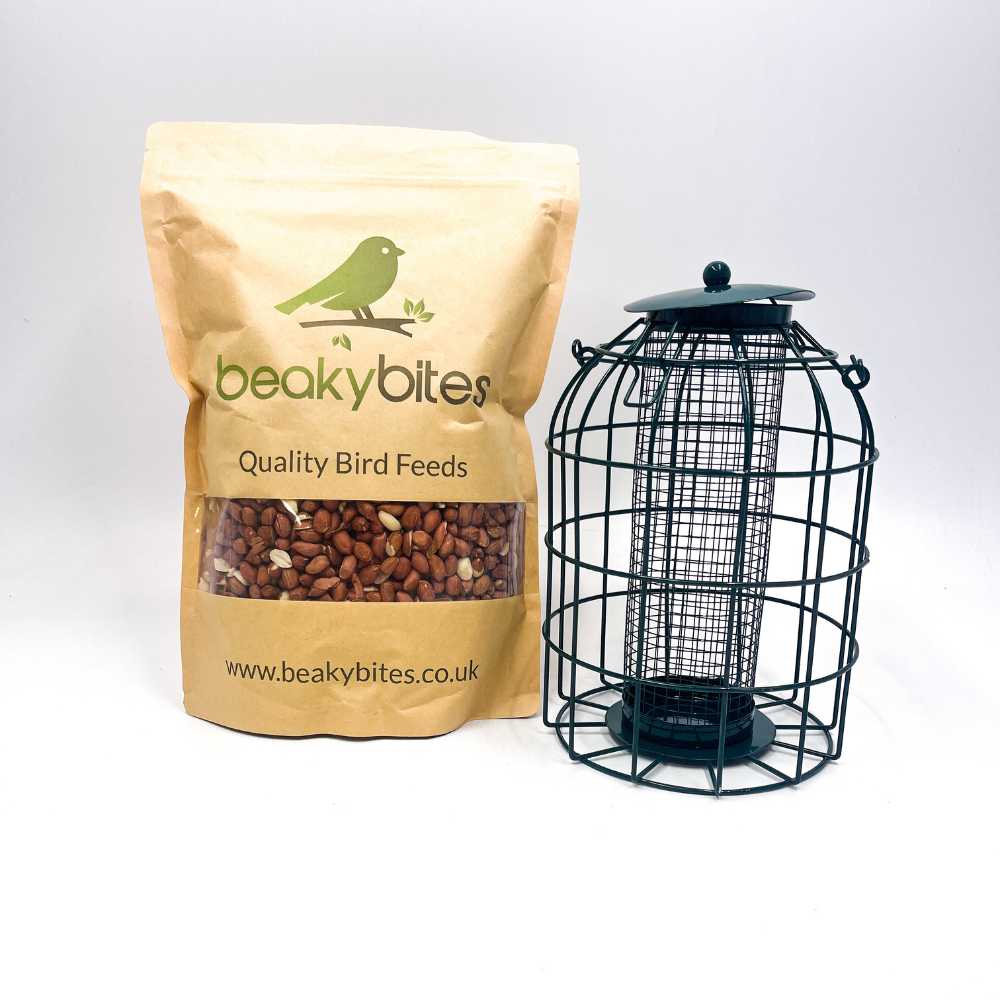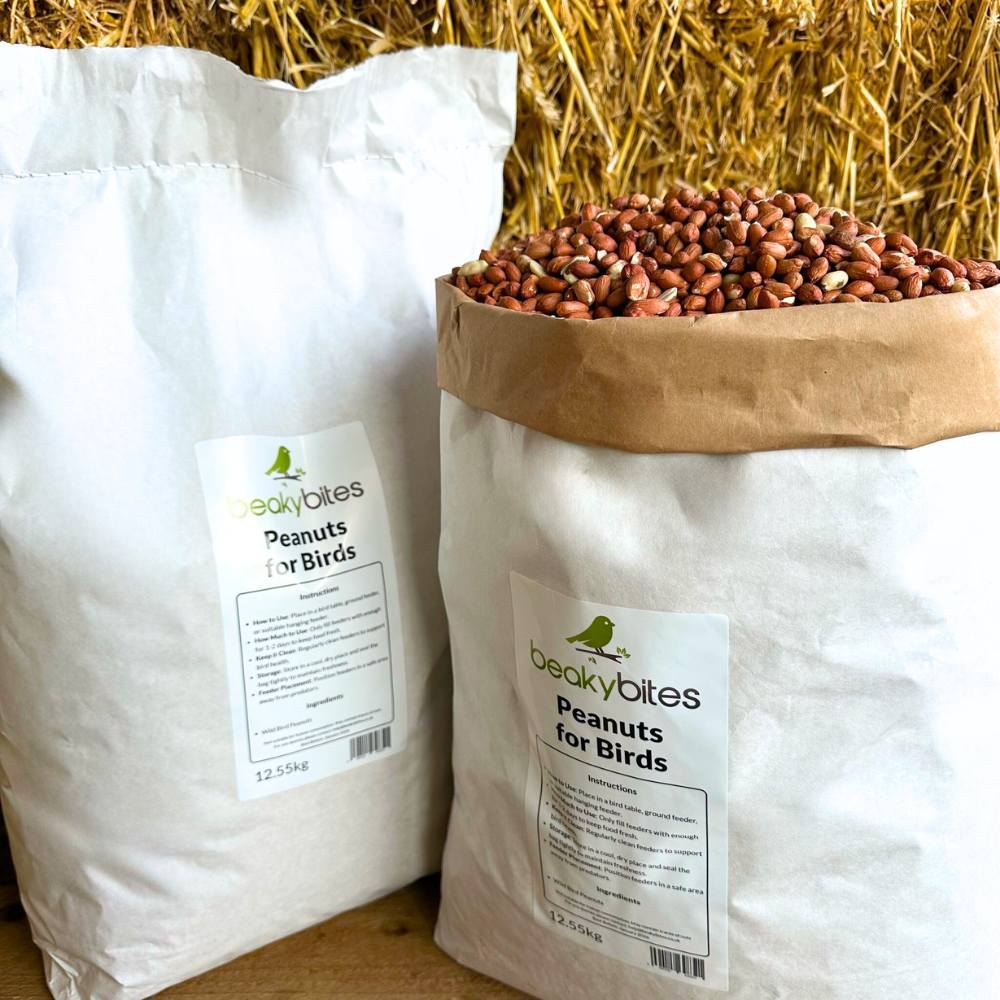How to Stop Squirrels Eating Your Bird Food
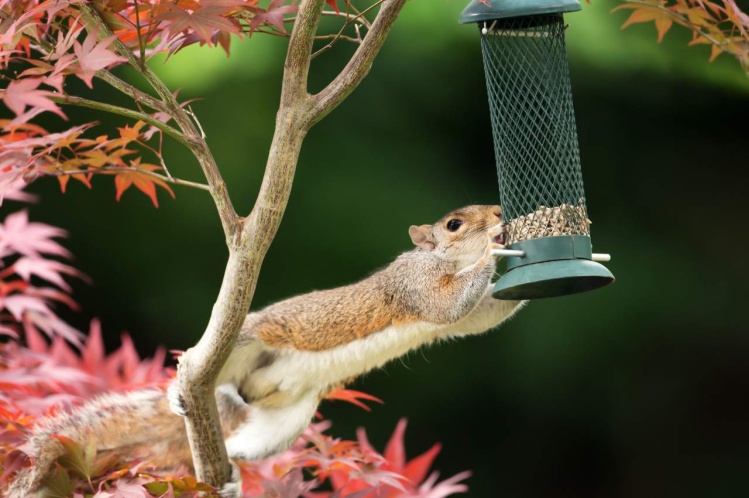
Mastering Bird Feeder Defence: How to Stop Squirrels Eating Bird Food
Feeding the garden birds is so rewarding but how frustrating is it when the bird food is snatched by squirrels? Our post today will deliver no nonsense methods on how to stop squirrels eating your bird food, ensuring your bird feeders remain for the small garden birds we all love. Discover the array of effective, squirrel defying tactics that you can apply in your garden.
What We'll Cover:
- Squirrel Proof Feeders: Selecting feeders specifically designed to prevent squirrels from accessing bird food.
- Bafflers: Installing physical barriers like domes or tubes to block squirrels from reaching your feeders.
- Placement: Strategically positioning your feeders in locations that are difficult for squirrels to access.
- Natural Remedies: Using safe, natural deterrents such as spicy birdseed or essential oils to repel squirrels.
- Keeping Clean: Regularly cleaning your feeders to avoid spills and debris that can attract squirrels.
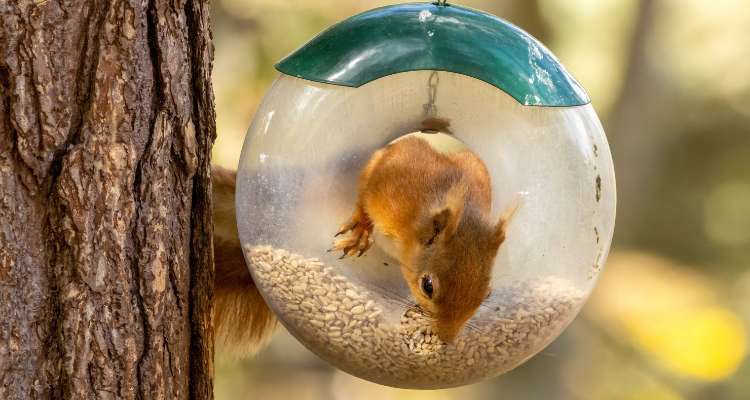
Fortifying Your Bird Feeders Against Squirrels
One effective way to deter squirrels is to use a caged feeder. These feeders feature a metal cage around the feed compartment, creating a barrier that squirrels can't penetrate. The cage provides extra perching spots for small birds, attracting a variety of avian visitors. However, some small and agile squirrels may still manage to navigate through the bars.
Spinning feeders offer another solution, using weight activated perching rings. Small birds can eat in peace, as they are light enough not to trigger the mechanism. When a heavier squirrel perches, the extra weight causes the ring to spin, knocking the squirrel off. This not only prevents access to the seeds but also discourages squirrels from returning.
Lastly, feeders with weight activated feeding ports are highly effective. These feeders close the feeding port when a heavier animal, like a squirrel, stands on the perch. This mechanism ensures that only lighter birds can access the seeds, keeping your bird feed safe and secure from squirrels.
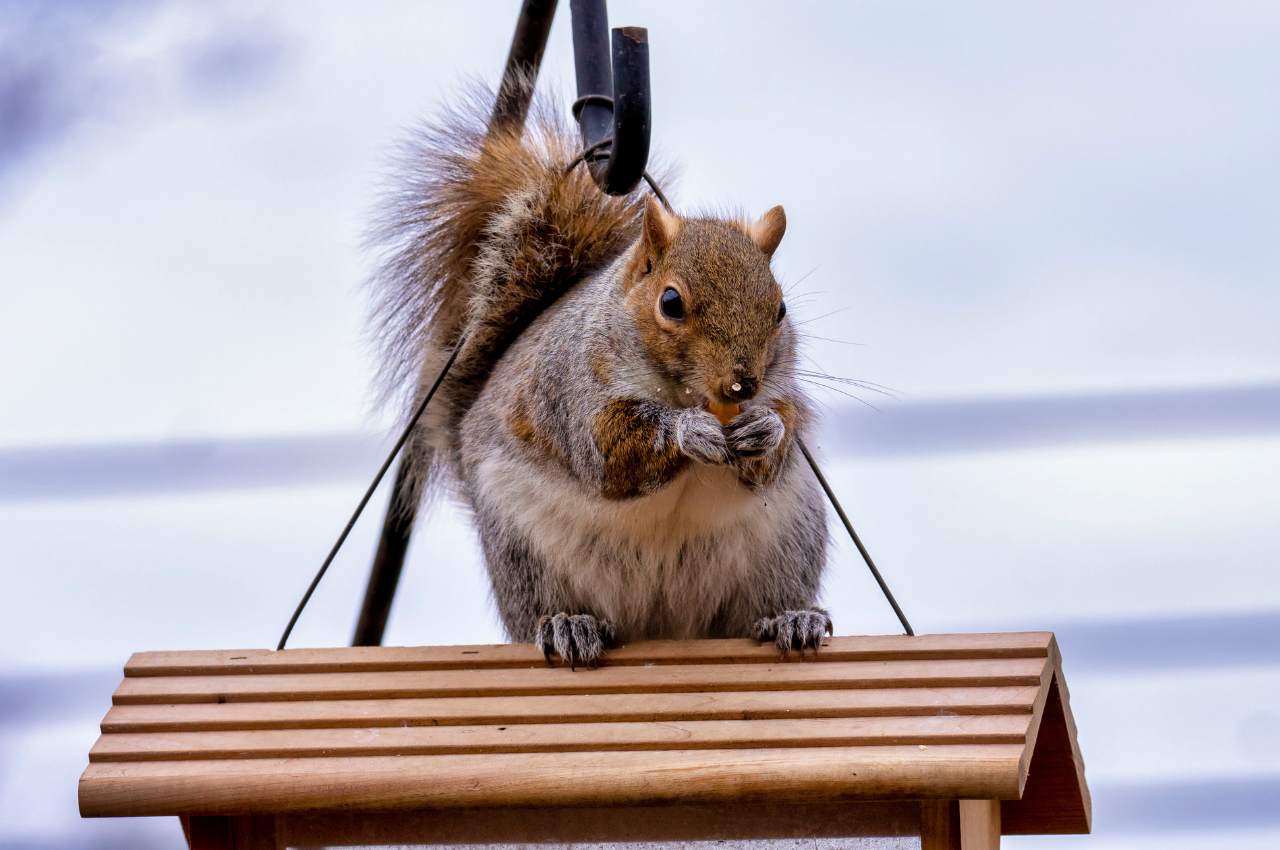
Baffle Them with Baffles
Squirrel bafflers, shaped like cones or cylinders, are highly effective at guarding bird feeders from pesky squirrels. These devices can be placed either above or below the feeder, creating an impenetrable barrier that stops squirrels in their tracks. Cost effective and versatile, bafflers can be used alongside your existing bird feeders, eliminating the need to replace your current set up. Whether attached directly to feeder poles or hung above the feeder, bafflers prevent squirrels from climbing around them and accessing the bird food.
Not only do these bafflers keep squirrels at bay, but they also don't interfere with the feeders or the birds ability to enjoy a peaceful snack. Birds can perch and feed undisturbed, benefiting from the extra weather protection provided by the bafflers.
Our Best Squirrel Proof Bird Feeders
Designed to stand guard around the bird feeder, deterring squirrels and creating a safe secure feeding spot for small songbirds.
Garden Layout
When positioning your bird feeder, consider the 5-7-9 rule: place the feeder at least 5 feet above the ground, 7 feet away from any nearby hedge or fence, and ensure there's a clear 9 feet above the feeder to deter squirrels. This strategic placement removes the squirrels' ability to jump directly onto the feeder, making it more difficult for them to access the bird food.
Take a look at your garden's layout and observe where squirrels are entering from. Squirrels typically use natural pathways such as tree branches, fences, or rooftops to reach bird feeders. By understanding their routes, you can strategically place baffles or barriers along these paths to redirect or discourage them from reaching the feeder.
Lastly, consider placing your bird feeder in an open area away from overhanging branches or structures. This not only helps in implementing the 5-7-9 rule effectively but also ensures a safer and more enjoyable feeding experience for your garden wild birds. By combining strategic positioning with effective deterrents, you can create a squirrel proof setup that encourages wild birds while minimising squirrel interference.
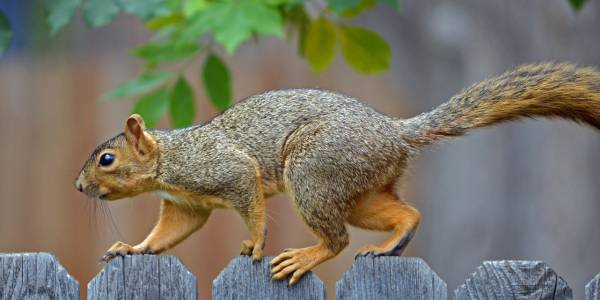
Spice It Up: Natural Deterrents That Work
As we turn to mother nature’s pantry for solutions, we find that a dash of cayenne pepper can be more than just a kick in your favourite dish—it’s also an effective squirrel repellent. Squirrels, much like us, find the heat from peppers quite unpleasant, whilst birds do not have the same taste receptors, so taste heat differently. So a bit of hot pepper mixed with your seed is enough to make any squirrel think twice before raiding your bird feeders again, but crucially doesn't harm squirrels in any way.
Switching the seeds in your feeder can help put off squirrels, who are particularly attracted to high fat nuts and sunflower seeds. Instead, try using safflower seeds, which have a bitter taste that squirrels dislike but wild birds like cardinals and chickadees enjoy. Niger (Nyjer or Thistle) seeds are also a good alternative bird food, favoured by finches and other small garden birds but typically ignored by squirrels.
Squirrels have a keen sense of smell, making essential oils like peppermint, clove, and thyme effective at keeping them away from bird feeders. These scents create an uninviting barrier for squirrels, while birds remain unaffected. For a simple home remedy, try hanging musky scented soap near your feeders; the strong odour acts as a deterrent, turning your bird station into a no go zone for squirrels.
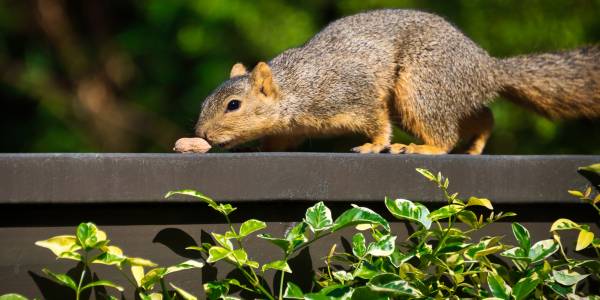
Maintaining a Squirrel Free Zone
Maintaining your bird feeders is crucial beyond just installing deterrents; it's key to long term success. A tidy feeding area, free from spilled bird food and debris, reduces the likelihood of attracting opportunistic squirrels. Regularly cleaning the ground beneath your feeders helps prevent squirrels from viewing your garden as a buffet. Additionally, keeping your feeders clean reduces the risk of attracting pests.
It's important to inspect feeders and bafflers regularly to ensure they are securely fixed and not damaged. This ensures they work effectively without posing harm to any animals. By maintaining a clean and functional feeding station, you create an environment that is welcoming to birds while deterring unwanted squirrel activity.
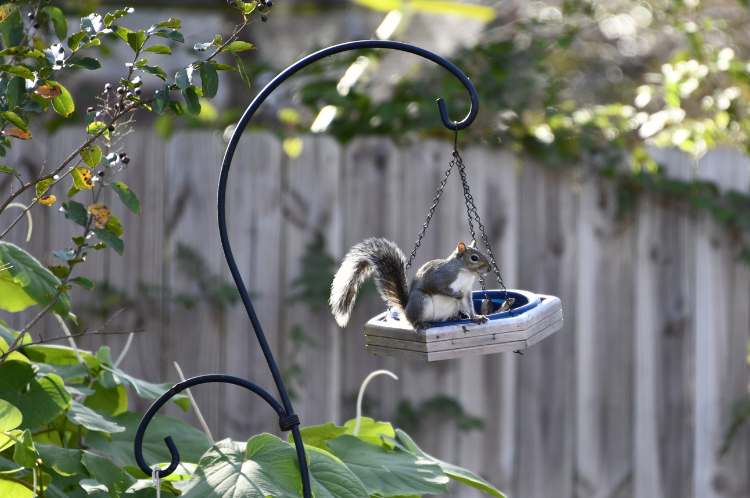
Summary
In this guide to squirrel proofing bird feeders, we've covered effective methods such as specialised feeders with cages and weight activated mechanisms, along with bafflers like cones and disks to deter squirrels. Strategic garden design, following the 5-7-9 rule, ensures feeders are placed in locations that minimise squirrel access. Natural deterrents such as essential oil sprays and less attractive seeds like safflower or niger seed provide eco-friendly alternatives without harming wildlife. Maintaining a clean feeding area and regularly checking feeders and bafflers for damage are crucial for long term success.
It's important to remember that while managing squirrels, they are part of the natural ecosystem we're nurturing. Avoiding poisons preserves the balance of our environment and ensures we protect all wildlife inhabiting our gardens. By adopting these practices, we can create a welcoming space for birds while respecting the natural diversity around us.
Frequently Asked Questions
What is the 5-7-9 rule for placing bird feeders?
- Answer: The 5-7-9 rule suggests placing feeders 5 feet above the ground, 7 feet away from jumping-off points, and 9 feet from nearby surfaces to deter squirrels.
Can squirrels jump onto hanging feeders?
- Answer: Yes, squirrels can jump onto hanging feeders, but baffles placed above them can prevent access.
Are squirrel proof feeders more expensive than regular feeders?
- Answer: Squirrel proof feeders are generally more expensive due to their specialised features but can save costs in the long run by reducing seed waste and damage.
Can I make my own squirrel proof bird feeder?
- Answer: Yes, DIY squirrel proof feeders can be made using materials like PVC pipes or wire mesh cages.
How can I attract birds while minimising squirrel access?
- Answer: Follow the 5-7-9 rule for placement and use squirrel proof feeders to attract birds while keeping squirrels at bay.
